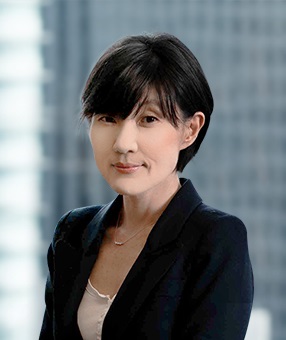Companies today face unprecedented challenges as a result of the COVID-19 pandemic; they find themselves in unfamiliar territory in such areas as employment relations, business contracts, and data privacy, to name just a few areas. To help clients navigate these uncertain times in respect of their business in Korea, Kim & Chang’s COVID-19 Taskforce has been providing newsletters on key issues.
In this newsletter, we look at the definition, elements and effects of force majeure under Korean law as seen through relevant court precedents.
We hope that this series will provide useful guidance for companies as they consider whether force majeure may come into play in their business endeavors.
1. Definition/Elements of Force Majeure
There are multiple references to “force majeure” in various Korean statutes. Unfortunately, the black letter law does not provide for a definition of “force majeure.” Statutes such as the Administrative Appeals Act merely refer to force majeure together with such events as natural disasters and wars.
However, relevant Supreme Court precedent holds that in order for a party to argue that an event constitutes force majeure, (i) the cause must be outside the realm of the party’s control and (ii) the party, despite having exerted reasonable efforts, was not able to foresee or prevent such event (Supreme Court of Korea Decision 2008Da15940, 15957 Decision). Based on such court precedent, the elements of a force majeure event are (i) a cause outside of the party’s control and (ii) lack of foreseeability/preventability.
2. Effects of Force Majeure
Force majeure is a narrower concept than “no fault” and is applied to limit liability in situations where recognizing “no fault” liability would be too harsh. For example, even if an agreement assigns liability to a party for breach when the cause is not attributable to such party, force majeure may exempt such party from liability for contractual breach.
Under the Civil Act of Korea, if it becomes impossible for a party to a bilateral contract to perform its obligation due to a cause that is not attributable to either party, such party may not seek performance of the counterparty’s obligation (Civil Act, Article 537). Furthermore, the obligee may not claim damages where performance has become impossible and not caused intentionally or negligently by the obligor (Civil Act, Article 390). Since force majeure refers to a circumstance where a party is not at fault for non-performance of an obligation, recognition of force majeure will allow a party to be exempted from performing a contractual obligation altogether or from damages for non-performance.
3. How Korean Courts Have Ruled on Force Majeure
The following table provides a summary of Korean court precedents that we have categorized, based on how the courts have interpreted the elements. Since exempting a party’s obligations citing force majeure leads to a shift in damage or loss to the other party, Korean courts have interpreted force majeure under a very strict standard and it is difficult to find case precedent where a court exempted a party’s contractual obligation due to force majeure.
|
A. Cause Outside of Party’s Control |
|
A.1 If a contractual agreement exists on cause of inability to perform |
|
Jeju District Court Decision 2016GaHap192 rendered on July 21, 2016.
|
|
A.2 The obligor of the party responsible for performance in an agreement (contractor parts/material supplier, etc.) |
|
Supreme Court of Korea Decision 2005Da59475, 59482, 59499 rendered on August 23, 2007.
|
|
Seoul Central District Court Decision 2018GaHap529238 rendered on May 22, 2019.
|
|
A.3 Foreseeability: Expansion of realm of control by a party |
|
Seoul Central District Court Decision 2018GaHap529238 rendered on May 22, 2019.
|
|
B. Foreseeability & Preventability |
|
B.1 Principles of Contractual Liability |
|
Supreme Court of Korea Decision 2001Da1386 rendered on September 4, 2002.
|
|
B.1 If a Party’s fault is involved |
|
Seoul Central District Court Decision 2009GaHap145966 rendered on June 16, 2010.
|
|
Seoul Central District Court Decision 2009Na37014 rendered on January 15, 2010.
|
|
B.3 Whether other competitors are able to perform or whether performance (payments) can be made through an agent |
|
Supreme Court of Korea Decision 96Da34610 rendered on March 28, 1997. [Damages for Delay]
|
|
Seoul Central District Court Decision 2018GaHap529238 rendered on May 22, 2019.
|
Related Topics







